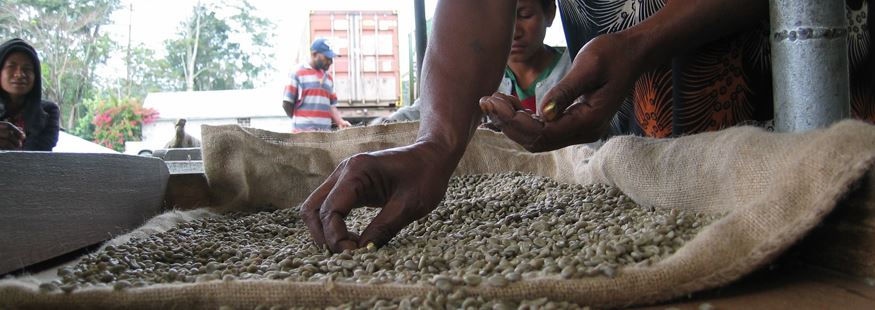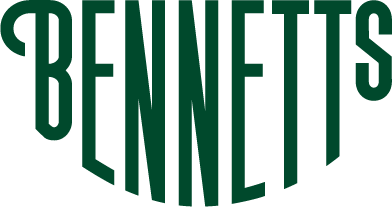Fairtrade: A Fair Go For All

In response to a recent decline in demand for Fairtrade Certified coffee, Bennetts take a look at what the system stands for and share our motivations behind supporting the certification program.
The
Fairtrade Certified Mark is universally known and trusted as a sign of fair
terms of trade for producers and farm workers in the developing world. One of
the most influential certification labels in the industry, Fairtrade standards
aim to alleviate poverty and promote sustainable development by addressing the
imbalance of power in trading relationships and the injustices of volatile
markets
Fairtrade is the only certification program that incorporates a minimum price, guaranteed to cover the cost of sustainable production for producers. Certification is only applicable to smallholders who are part of a democratically run cooperative or farmers’ organisation. This condition seeks to help the weakest, poorest producers who often find themselves at the bottom of the barrel through conventional trade agreements. In addition to the minimum price, the certification also attracts a premium that must be invested in social, environmental or economic development projects within the wider community. The allocation of this premium is democratically decided upon by producers within the farmers’ organisation. For a cooperative to achieve Fairtrade certification it must meet the international Fairtrade social, economic and environmental standards which are set by the certification body Fairtrade International (FLO). These standards are agreed and deliberated on by all relevant stakeholders in the Fairtrade program, including producers themselves, traders, NGOs, academic institutions and Labelling Initiatives such as Fairtrade Australia & New Zealand.
Fairtrade
Certified has received its share of criticism since entering the coffee
industry. The certification has garnered supporters and adversaries along the
way, often proving more desirable when the industry is faring well. The recent
decline in the price of coffee has coincided with a downturn in demand for
Fairtrade Certfied coffee. Strict licensing requirements have caused some
roasters to move away from Fairtrade Certified coffee, while others have raised
concerns regarding quality. Fairtrade certification requires all members of the
supply chain to comply with various licensing agreements to ensure traceability
and transparency. Fulfilment of these license requirements can be challenging
and costly, however they are integral in upholding the integrity of the
Fairtrade mark and to ensure consumers that their purchase is representative of
fair terms of trade throughout the supply chain and signifies improved livelihoods
for producers. Fairtrade certification is not always a guarantee of superior
quality coffee, and given the pricing based nature of the program some level of
apprehension regarding cup quality is understandable. However, as with all
coffee whether it be certified or not, cup quality is dependent on a number of
factors, including cultivation and processing. Being part of a cooperative
offers producers access to knowledge and resources that afford them the
opportunity to monitor and improve the quality of their coffee. Investment of
the Fairtrade premium into the community generates new opportunities for
cooperative members, and fosters an approach of constant improvement. Fairtrade
Certified recognizes the potential of smallholder producers and ensures that,
through certification and cooperative assistance, they are producing quality
coffee to the best of their abilities while taking an active role in improving
their quality of life and creating a better future for their families. The demand
for Fairtrade Certified coffee experiences highs and lows, often following the volatility
of the market. Nonetheless, the integrity of the Fairtrade mark and its proven influence
has earned a mass of loyal consumers who are committed to purchasing certified
coffee through good times and bad, ensuring a guaranteed market for certified
organisations.
One of Bennetts Fairtrade Certified partners, the Highland Organic Agriculture Cooperative (HOAC) is amongst the oldest Fairtrade Certified organisations in Oceania. Since its certification in 2005, HOAC has improved its administration structure, increased production volume and administered the Fairtrade premium to establish education facilities and water infrastructure for its communities. In recent years, HOAC has worked closely with the local government to achieve road improvements in the region and invested in coffee quality improvement projects. Thi sincluded the purchase and distribution of 150 coffee pulpers to allow members to improve the quality of their coffee and in turn, gain bargaining power. The benefits of HOAC’s certification reach far and wide. Currently consisting of 2,600 members, the cooperative is estimated to directly benefit over 50,000 people in the Eastern Highlands Province of Papua New Guinea. Throughout our longstanding partnership with HOAC, Bennetts have observed firsthand the benefits of Fairtrade Certification and the progression this has facilitated for the coop and its members. Being able to rely on the Fairtrade minimum price and premium has afforded HOAC the opportunity to consistently produce quality coffee and care for their communities, despite the volatility of the coffee market.
The Fairtrade system directly benefits over six million people, including farmers, producers, workers and their families, in 77 countries around the world. Fairtrade has been a fundamental constant for many smallholders across the globe, securing livelihoods and proving dependable when the relentlessly unstable coffee market has taken a turn for the worse. As the price of coffee continues to decline, those producers who are Fairtrade Certified will be safeguarded throughout the decline; the minimum price allowing them to support their families and protect their livelihoods.
Bennetts support Fairtrade Certified because we wholeheartedly believe in the program. Through our experience we have seen the benefits of Fairtrade certification and the change it can bring to a community. We are committed to supporting our Fairtrade Certified cooperative partners and know that our extra dollars are going directly to ground zero to support the social, economic and environmental development of the communities. With a number of diverse, yet equally significant, certification programs currently present within the industry, Bennetts are proud to support the Fairtrade system for its positive influence in promoting social change within developing communities.
To find out more about Fairtrade visit www.fairtrade.com.au and to view our current stocks of Fairtrade coffee click here, or alternatively contact your sales rep.



